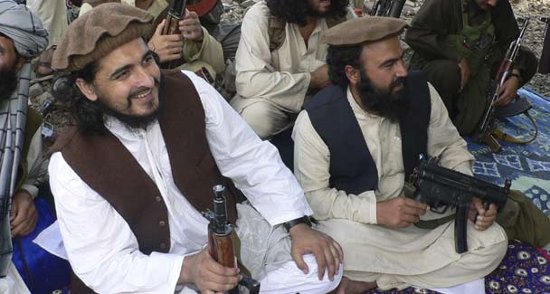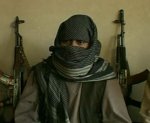Iraq Report: Kirkuk, DeBathification and around Iraq
There have been no major attacks inside Baghdad since the suicide bombing in the Shia market on March 29. The Iraqi government has eased the curfew in the capital as security is seen to have improved since the commencement of the Baghdad Security Plan in mid February. Al Qaeda in Iraq has been striking at the seams as U.S. and Iraqi forces move forces from the provinces to secure Baghdad. The attacks in Khalis, Tal Afar and Kirkuk are directed at gaps in security, and are designed to stir up ethnic tensions. In a press briefing this morning, a spokesman from the Iraqi government announced that operations modeled after the Baghdad Security Plan will occur in both Mosul and Diyala.
Kirkuk has been a target for al Qaeda over the past week. Since the announcement to "relocate and compensate thousands of Arabs who moved to Kirkuk as part of Saddam Hussein's campaign to push out the Kurds" by the Iraqi government on March 31, al Qaeda is working to ignite the violence in the city. On April 2. A suicide truck bomb killed 12 and wounded over 150 civilians. On April 3, another suicide truck bomber struck a police station and killed 13, including 10 civilians, 2 Iraqi police and a U.S. soldier, and wounded 180 civilians, 17 Iraqi police and 2 U.S. soldiers. Today, 9 civilians were wounded after 3 roadside bombs were detonated in Kurdish neighborhoods of Kirkuk.
The Iraqi government has committed to pressing forward with the reconciliation process, which is vital to cleave the moderate elements of the insurgency from al Qaeda in Iraq. The reconciliation process requires economic incentives, the reformation of the legislative system and a change in the controversial "De-Baathification laws" which excluded anyone that was a member of the Baath party from working with the government. It was reported earlier this week that Grand Ayatollah Ali al Sistani, the senior most Shia cleric in Iraq, opposed the de-Baathification reforms, however his office issued a statement denying this. Sistani's spokesman "stressed that his office had warned before of relying on statements linked to His Eminence Mr. Sistani without being documented and sealed by the office." On the economic front the Iraqi government has allotted $92 million to development projects and emergency aid to the northern province of Niwena. A similar aid package was granted to Anbar province after Prime Minister Maliki and General Petreaus visited Ramadi.
Iraqi and Coalition forces continue to conduct operations against al Qaeda and insurgent groups. Today, Coalition captured 9 al Qaeda during raids in Mosul, Habbaniyah and Karma. On April 3, 6 al Qaeda were killed and 13 captured during operations in Fallujah and Al Qaim, near the Syrian border. On April 2, 6 more terrorists were killed and 10 captured in raids in Mosul, Baghdad and Karma. U.S. and Iraqi forces also discovered a terrorist training facility and large weapons cache in the Diyala River Valley. On April 1, Iraqi police captured 9 insurgents in Lutifiyah, while Coalition forces captured 4 al Qaeda and killed 1 terrorist "while conducting an operation near the Syrian border." A four day operation in Arab Jabour has resulted in 8 insurgents killed and 13 captured, and the discovery of multiple weapons caches, which included 6 DShK anti-aircraft heavy machineguns.
Operations against the Mahdi Army continue as well. On March 31, Iraqi Special Forces captured two members of the Mahdi Army in Sadr City. On April 1, Iraqi police arrested a suspect "alleged to be responsible for weapon smuggling and improvised explosive devices activities" in Kut in the South. The U.S. is shying away from labeling them as Mahdi Army fighters, however, as it is taking advantage of the split between Muqtada al Sadr's Mahdi Army to peal away significant elements of his support base. The signs of the cracks in Sadr's organization continue to appear. Sadr has dismissed two politicians "for meeting the occupiers."
Al Qaeda continues its own brutal campaign. On April 2, Iraqi police in Sab Al Bor found the body of an 11 year old boy. The child's throat was slit. "A police report of the incident indicated that a local Al Qaeda cell is suspected in the murder which was "perpetrated to instill fear in the villagers of Sab Al Bor," notes Multinational Forces Iraq. Al Qaeda has used children in the past to conduct suicide attacks, even mentally disabled children, or serve as decoys in these attacks. Al Qaeda suicide bombs routinely murder children, and the recent spate of chlorine attacks have poisoned scored of children who, along with seniors, are most susceptible to the gas.


